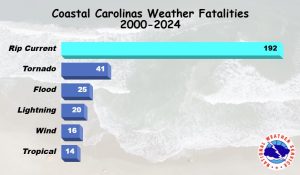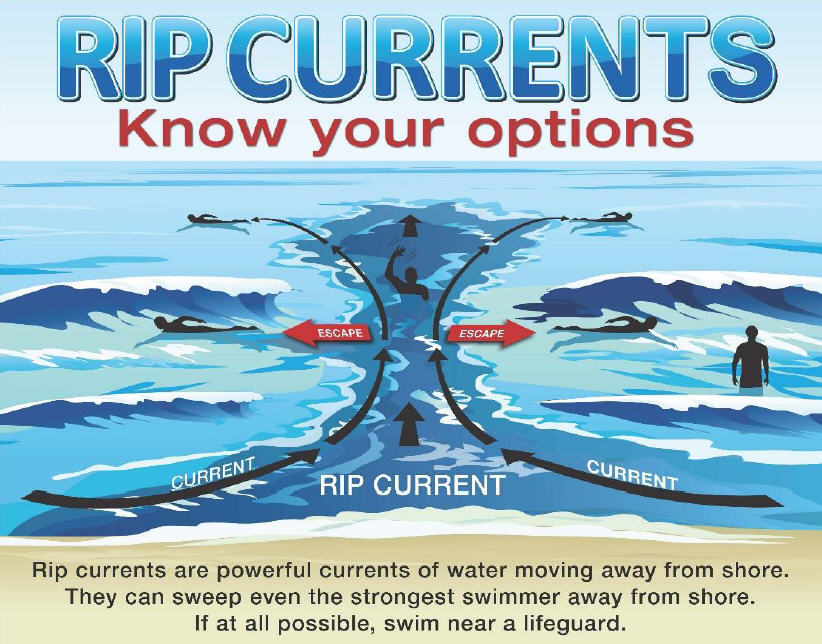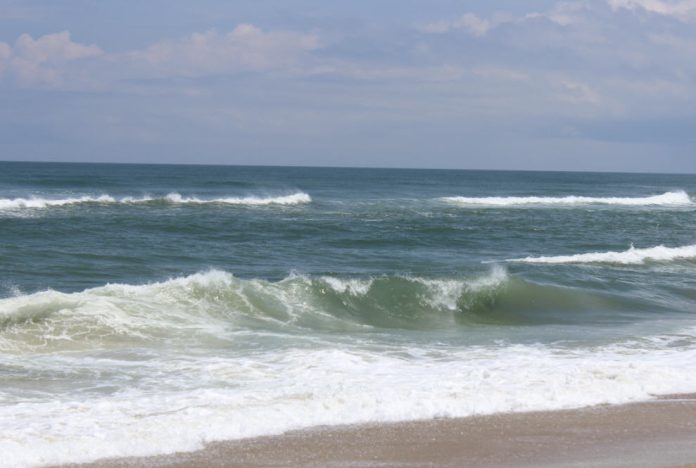The National Weather Service offices that serve the coastal Carolinas (NWS Charleston SC, NWS Wilmington NC, NWS Newport/Morehead City, and NWS Wakefield) are joining to host the first-ever Carolinas Rip Current Awareness Week from April 27 through May 3.
Rip currents are the deadliest and most common hazard people face at the beaches of North and South Carolina, as well as along most of the coastlines of the world. The United States Lifesaving Association (USLA) estimates rip currents are responsible for about 100 drownings each year in the United States and over 80% of lifeguard rescues.

Between 2000 and 2024, there were 192 rip current drownings reported in North and South Carolina. This number far exceeds any other weather-related fatalities during that time frame, making rip currents the #1 weather related killer in the coastal Carolinas.
With millions of people visiting the beaches of North and South Carolina each year, it is very important rip current awareness and education continues to be promoted to help keep the public safe.
This is especially true for inland communities, where the majority of rip current fatalities occur. People who vacation at the beach need to be aware of the danger of rip currents.
Dr. Stephen P. Leatherman, aka “Dr. Beach,” America’s foremost expert on beaches, and who named Ocracoke Lifeguard beach the best beach in 2007 and 2022, has a video on his website, www.drbeach.org, where he asks beachgoers what is their greatest fear in the ocean.
“Sharks,” say those he interviews, but Leatherman corrects that: It’s rip currents.
Throughout week, local National Weather Service offices will share various beach safety tips, rip current facts, and resources through social media platforms, local media, and beach partners.
Topics are as follows
| Day of The Week | Topics |
| Sunday | Rip Current Basics |
| Monday | How to Escape a Rip |
| Tuesday | How to Spot a Rip |
| Wednesday | Rip Risk Forecast |
| Thursday | Inland Impacts |
| Friday | Bystander Problem |
| Saturday | Distant Storms |
For details on these issues, go to the website and click on the topic to get information.
For more information on rip currents, visit the Carolinas Rip Current Awareness webpage at www.weather.gov/mhx/ripcurrents.










